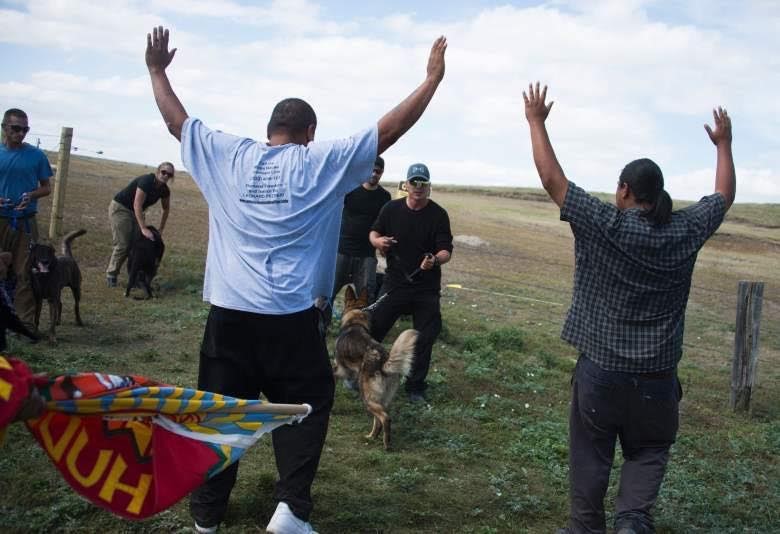Standing Rock, North Dakota isn’t a place that people usually hear about. Yet it gained national attention when the indigenous people started protesting the Dakota Access Pipeline.
There are overlaying issues of environmental, indigenous sovereignty, and basic rights that are being fought over.
Jace Riggin, a recent Gustie grad, has joined the hundreds of protesters. He was well known at Gustavus as someone that tried to put 110% effort into everything. That would help him succeed in a place that the media is trying to shame. Standing Rock and Riggin have made impressions about what it really means to exercise our rights.
Before he made it to North Dakota, Riggin had an impressive resume at Gustavus; he was a political science and communication studies double major, Peer Assistant, on the Diversity Ambassadors Program, and several other organizations.
For Riggin, the amount of organizations he was involved with didn’t compare to the love he held for Gustavus.
“Gustavus welcomed me, educated me, and loved me for who I was. Being involved on campus was the least I could do in response to that hospitality,” Riggin said.
Gustavus held him in such esteem as he did Gustavus. Riggin was awarded the college’s 2015 Ovanlig Award, an award that honors a student involved with raising awareness of gay, lesbian, bisexual, or transgender concerns.
Riggin demonstrated his commitment to the LGBTQ community when he conducted a survey for his local high school. He found that very few of the LGBTQ community felt welcomed there. He worked with the local government to address LGBTQ concerns.
While at Gustavus and post-college, Riggin worked at real life issues that sometimes pass us on campus. Some wonder if Gustavus adequately prepares us for the real world.
Riggin disproves our fears about “adulting” and confirms that Gustavus does prepares us for the real world.
“Gustavus taught me to ask: Who benefits and whose expense,” Riggin said.
That would lead Riggin to where he is now, participating in the protests at Standing Rock, North Dakota.
The Guardian article, “Standing Rock Protests: This is only the Beginning,” written by Rebecca Smolnit, as suggested by Riggin, takes a standpoint from inside the protester camps.
“Climate and environments groups-a coalition with tremendous possibility for the future of both indigenous right and the climate movement,” Smolnit said.
Hundreds have joined the first protestors from across the country. Standing Rock has received support from 180 American and Canadian Native American tribes. The fight isn’t just about Standing Rock and their land. This pipeline would impacts thousands of other people via water contamination. The pipeline would infect the river systems such as the Missouri and Mississippi rivers.
Governments have been long exploiting others for the “gains” of the larger majority. Another incidence of this kind is happening in a place that has already been exploited.
Today, the pipeline’s private security firm has brought dogs and mace to deter the protesters. These strategies for dissuading protesters are reminiscent of the civil right issues of the 60’s. The North Dakota Governor even ordered the National Guard to assemble at Standing Rock. Recently, there have numerous articles about the ‘corruptive’ protesters that are trying to hinder progress one article was headlined as “Protestors get Violent”.
The article had a picture of a protester about to strike one of the dogs with a wooden board. But they have failed to publish “multiple pictures of protesters standing with their hands in the air about to be bitten by the dogs,” Riggin said.
Riggin has more than just observed these activities at Standing Rock. He feels that hometown in North Dakota was the biggest call of action for him. At first glance, Riggin could pass for growing up in a Caucasian family. Yet he grew up with a Native American stepfather and sister.
He grew up under the shadow of American policies on Native Americans, “I knew [my sister] would face challenges that I will never have to. I grew up reminded of a silent history that white Americans have the luxury of forgetting.”
All of his life, Riggin knew what it felt like to be prosecuted by a higher power. He has used that momentum his entire life to fight for minorities.
